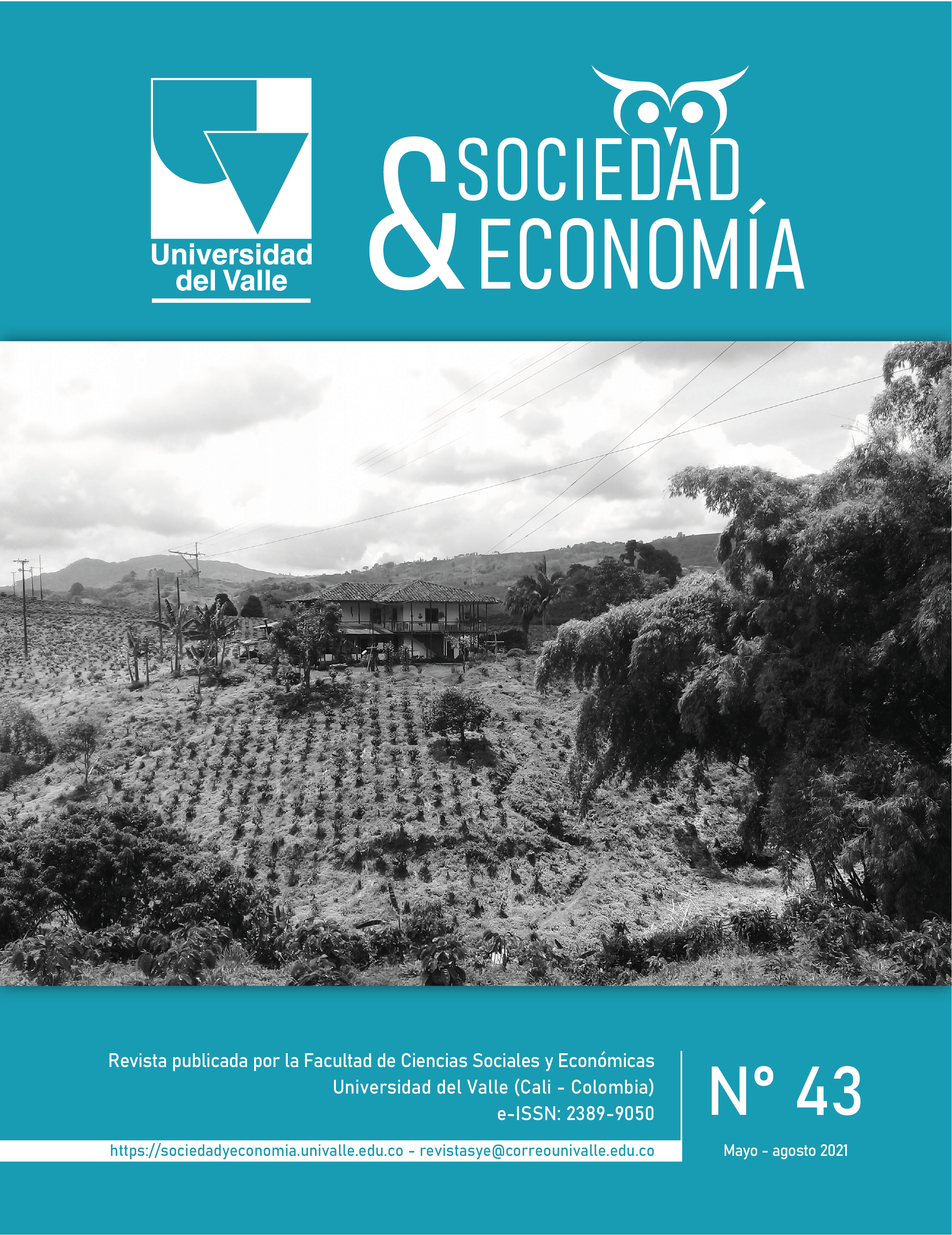Some Considerations on Conceptual Issues in History of Economic Thought
Keywords:
Teaching of economics, history of economic thought, conceptual history, matrix methodMain Article Content
This paper aims to vindicate the importance of the teaching and practice of the History of Economic Thought, as a medium that offers a general and integrated view of the field of Economics that favors the advancement of economic theory. To do so, it is proposed to recover the matrix method. It is concluded that this alternative has the potential to contribute to the development of high-level cognitive skills and critical thinking.
Álvarez, A. y Hurtado, J. (2010). Amenazas y ventajas de la enseñanza de la Historia del Pensamiento Económico. Lecturas de Economía, (73), 275-301. https://doi.org/10.17533/u0ea.le.n73a7874
Angrist, J. D. y Pischke, J. S. (2010). The Credibility Revolution in Empirical Economics: How Better Research Design Is Taking the Con out of Econometrics. Journal of Economic Perspectives, 24(2), 3-30. https://doi. org/10.1257/jep.24.2.3
Blaug, M. (2001). No History of Ideas, Please, We’re Economists. Journal of Economic Perspectives, 15(1), 145-164. https://doi.org/10.1257/jep.15.1.145
Cardoso, J. L. (1995). Teaching the history of economic thought. The European Journal of the History of Economic Thought, 2(1), 197-214. https://doi.org/10.1080/10427719500000100
Castro, J. y Raffo, L. (2016). Algunas consideraciones sobre la estructura curricular de los programas de Economía en Colombia. Sociedad y economía, (30), 147-170. https://doi.org/10.25100/sye.v0i30.3904
Davis, J. B. (2019). Specialization, fragmentation, and pluralism in economics. The European Journal of the History of Economic Thought, 26(2), 271-293. https://doi.org/10.1080/09672567.2018.1555604
Ekelund, R. B. y Hébert, R. (1992). Historia de la Teoría Económica y de su Método (3 ed.). McGraw Hill. Ekelund, R. B. y Hébert, R. F. (1998). Critical Thinking: Some Problems with the Matrix Method. The Journal
of Economic Education, 29(3), 274-276. https://doi.org/10.2307/1183455
García, P. y Giraud, Y. (2016). The place of the History of Economic Thought in mainstream economics, 1991- 2011, viewed through a bibliographic survey. Journal of the History of Economic Thought, 38(4), 431-462. https://doi.org/10.1017/S1053837216000481
Gómez, R. y Tobón, A. (2009). Reivindicando una definición para la historia del pensamiento económico. Lecturas de Economía, (71), 243-249. https://doi.org/10.17533/udea.le.n71a4821
Goodwin, C. D. (2008). History of Economic Thought. En S. N. Durlauf y L. E. Blume (Eds.), The New Palgrave Dictionary of Economics (pp. 48-57). Palgrave Macmillan. https://doi.org/10.1057/978-1-349-95121- 5_2624-1
Gordon, D. F. (1965). The role of the History of Economic Thought in the understanding of modern economic theory. The American Economic Review, 55(1), 119-127. https://www.jstor.org/stable/1816253
Keynes, J. M. (1936/2013). The General Theory of Employment, Interest and Money (The Collected Writings of John Maynard Keynes Vol. VII). Cambridge University Press.
Koselleck, R. (2004). Historia de los conceptos y conceptos de historia. Ayer, 53(1), 27-45. http://revistaayer. com/articulo/711
Marcuzzo, M. C. (2008). Is history of economic thought a «serious» subject? Erasmus Journal for Philosophy and Economics, 1(1), 107-123. https://doi.org/10.23941/ejpe.v1i1.10
Peterson, D. y Bean, J. C. (1998). Using a Conceptual Matrix to Organize a Course in History of Economic Thought. The Journal of Economic Education, 29(3), 262-273. https://doi.org/10.2307/1183454
Richter, M. (1987). Begriffsgeschichte and the History of Ideas. Journal of the History of Ideas, 48(2), 247- 263. https://doi.org/10.2307/2709557
Roncaglia, A. (2006). La Riqueza de las Ideas: Una Historia del Pensamiento Económico. Prensas Universitarias de Zaragoza.
Samuelson, P. A. (1987). Out of the Closet: A Program For the Whig History of Economic Science: Keynote Address at History of Economics Society Boston Meeting, June 20, 1987. Journal of the History of Economic Thought, 9(1), 51-60. https://doi.org/10.1017/S1042771600004002
Schumpeter, J. A. (1954/1994). Historia del Análisis Económico. Editorial Ariel.
Skinner, Q. (1969/2007). Significado y comprensión en la historia de las ideas. En E. Bocardo-Crespo (Ed.), El
Giro Contextual: Cinco Ensayos de Quentin Skinner, y Seis Comentarios (pp. 63-108). Tecnos.
Thoma, G. A. (1993). The Perry framework and tactics for teaching critical thinking in economics. Journal of
Economic Education, 24(2), 128-136. https://doi.org/10.2307/1183161
Trautwein, H. M. (2017). The last generalists. The European Journal of the History of Economic Thought,
(6), 1134-1166. https://doi.org/10.1080/09672567.2017.1378694
Vallespín, F. (1995). Giro lingüístico e Historia de las Ideas: Q. Skinner y la «Escuela de Cambridge». En R. R. Aramayo, J. Muguerza y A. Valdecantos (Comps.), El Individuo y la Historia: Antinomias de la Herencia Moderna (pp. 287-301). Paidós.
Weintraub, E. R. (1996). What Defines a Legitimate Contribution to the Subdiscipline «The History of Economics». HES Editorial.
Downloads

This work is licensed under a Creative Commons Attribution-NonCommercial 4.0 International License.
Revista sociedad y economía editada por la Facultad de Ciencias Sociales y Económicas de la Universidad del Valle se encuentra bajo una Licencia Internacional Creative Commons Atribución - No comercial 4.0
Basada en una obra en http://sociedadyeconomia.univalle.edu.co

